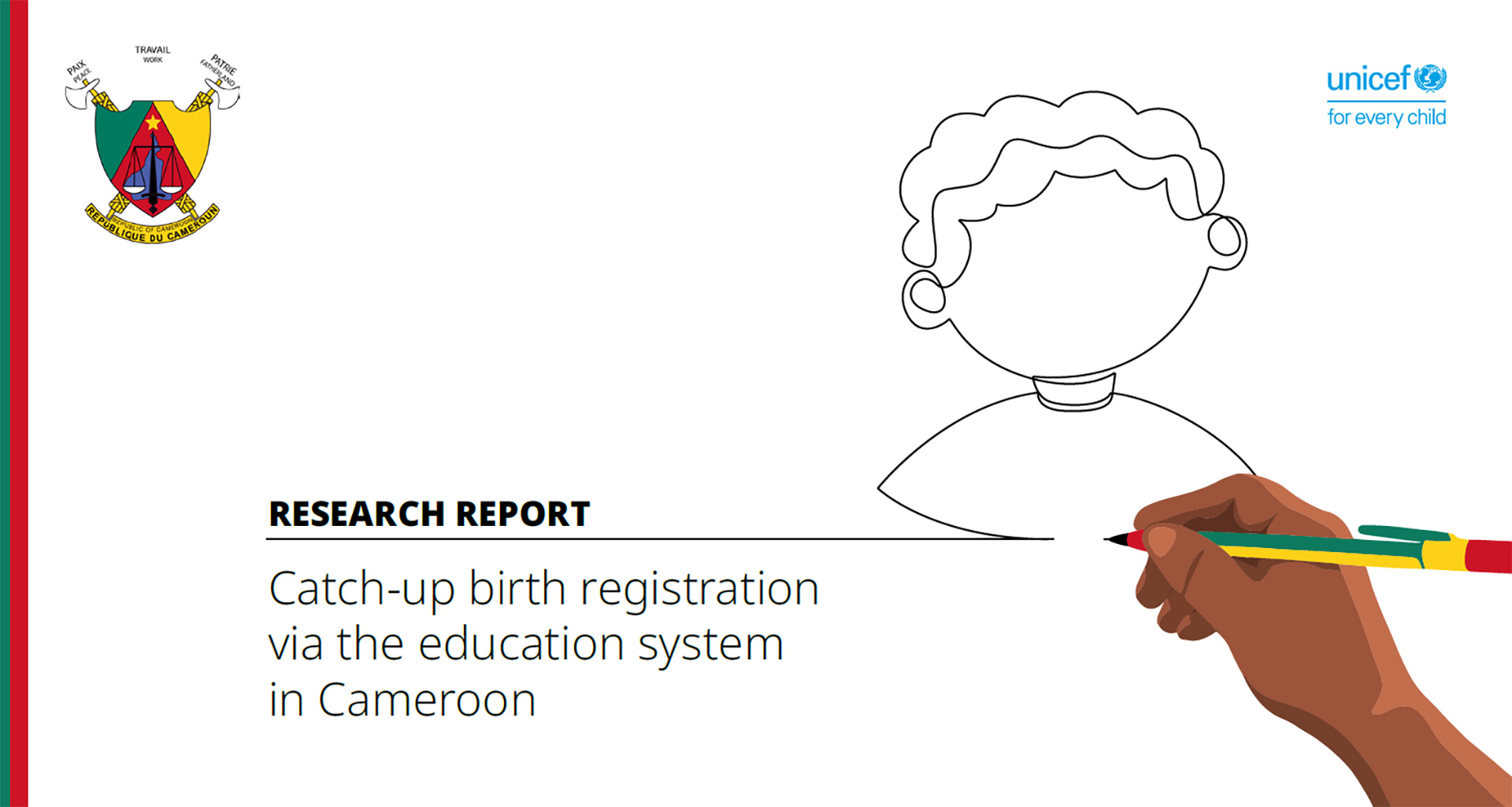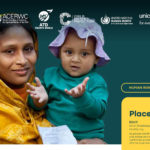
Catch-up birth registration in schools
As part of an initiative launched by the Ministry of Basic Education of Cameroon (MINEDUB), Ministry of Decentralization and Local Development (MINDDEVEL), Ministry of Justice, the National Civil Status Registration Office (BUNEC), and in collaboration with UNICEF Cameroon, World Bank and other key stakeholders, Child Identity Protection (CHIP) conducted research on the Special Operation of the Support Programme for Education Reform in Cameroon (Special PAREC Operation). The operation aims to provide birth certificates to pupils at the end of their primary education, as it is a mandatory document for sitting the end-of-primary exams. Through PAREC, 48,232 CM2 and Class 6 pupils had their legal identity established and civil status regularised over the course of only a few months.
To provide oversight to the overall research, a Working Group, led by Mrs. Ayukegba Evelyne as the Chairperson (MINEDUB) and representatives of all relevant stakeholders was established. Based on desk research, a mission end 2024 to conduct interviews with over 200 professionals and presentation of the draft report early 2025 to actors, a final report of the work in Cameroon was prepared with aforementioned partners. With the goal to support PAREC to optimise the Special Operation, the report highlights both promising practices and remaining challenges, and formulates guidelines to facilitate the process
The report concludes that while the Special PAREC Operation initiative represents a step forward for Cameroon in its effort to register children, this sort of mass catch-up registration initiative should remain a transitional tool and should not replace birth registration within the legal timeframe. It stresses the importance of raising parents’ awareness of the need to register children systematically from birth, and of strengthening inter-sectoral collaboration to ensure the effective implementation of obligations relating to children’s civil status.
Once the backlog is addressed, the report encourages Cameroon to develop a legal and policy framework enabling school-based registration for exceptional cases in the long term. CHIP is optimistic that this approach could inspire other countries in the region to adopt similar strategies to address the problem of non-registration of births outside the legal deadlines, to guarantee the right to universal education and legal identity.
Child Identity Protection would like to express our sincere thanks to the many experts who contributed to this research and who gave up their time to take part in discussions that enriched this report. We are particularly grateful to representatives from MINEDUB, MINDDEVEL, MINJUSTICE, BUNEC, UNICEF WCARO and Cameroon as well as the World Bank particularly the members of the Working Group.





